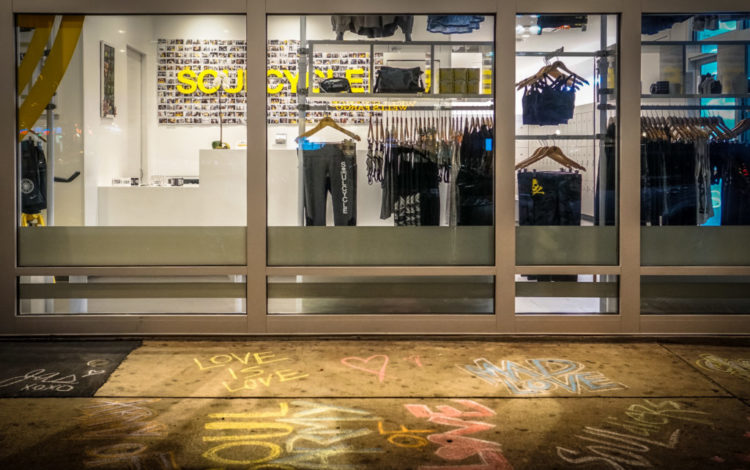Guest Post: SoulCycle’s Halo Loses Luster over Political Fundraiser for Trump
By: Ciara Torres-Spelliscy
The people running SoulCycle and Equinox’s gym franchises woke up to a serious headache in early August when the owner of their parent company Stephen Ross decided to throw a $250,000 a person fundraiser for President Trump’s re-election in the Hamptons. Ross also owns the Miami Dolphins football team. As soon as the public noticed this fundraiser, many on social media started calling for boycotts of SoulCycle and Equinox. Calls to boycott Dolphins were decidedly more rare, but there were some like one from Fred Guttenberg, a father of young woman killed at Parkland, Florida in 2018.
Celebrities like Chrissy Teigen announced that they had cancelled their gym memberships since there are other over-priced gyms one could join that don’t financially support Trump or his agenda. For example, TV legal commentator Maya Wiley tweeted she was quitting Soul Cycle writing, “I love #SoulCycle. I support #SteveRoss #Trump fundraiser. I support his right to his views. Since he uses his $ to support child separation, hatred, division & animosity for the rule of law, he can’t have anymore of mine. My butt won’t be on his bike.” And as comedian Billy Eichner tweeted, “Never thought I’d have to ask this but …. Do Nazis own Crunch?”
American boycotts to reject something politically abhorrent has a long and proud history. As I detailed in my new book Political Brands, many founding fathers and mothers led political boycotts, especially against British tea. The Boston Tea Party was a more destructive manifestation of the same anger that led women from Massachusetts to the Carolinas to refuse to steep tea from the British East India Company, and turn to home grown tea as an alternative. This practice is sometimes known as a “buycott.” As disgruntled gym members learned in real time last week, as they boycotted “Equinox,” they could buycott “Crunch” or other gyms.
SoulCycle and Equinox put out a statement trying to distance themselves from Ross and the political fundraiser controversy since Ross’s company Related Companies only “passively” invests in them and other brands like Pure Yoga, &pizza, Bluestone Lane Coffee and Momofuku. You can listen to the women who started SoulCycle on NPR’s “How I Built This” explaining how they sold it to Equinox. And to be fair, I seriously doubt the original women who founded SoulCycle (Elizabeth Cutler and Julie Rice) would touch a Trump fundraiser with a ten foot poll. But right about now, I bet there are a lot of SoulCycle gym members who wish they still owned SoulCycle instead of Ross and Related Companies.
Mr. Ross, if press reports were accurate, was “freaked out” over the commercial boycotts of his money-making gym brands, but President Trump convinced him that the furor would blow over. The pro-Trump fundraiser happened as planned. Ross has financial investments in Trump beyond this fundraiser including interest in Trump Tower in Manhattan.
Since the boycott didn’t stop the Trump fundraiser, the question can be fairly asked: do boycotts ever work? So this all depends on how one defines “working.” If the point of a boycott is getting a particular action done by a corporation, then they often fail. Corporations often are as hardheaded as people. When pushed, they will often dig in. But boycotts can change corporate behavior from the price of goods (when the price was what boycotters hated) to ending racial segregation—just think of the super effective Montgomery bus boycott.
Sometimes what boycotting prompts isn’t the exact demand boycotters requested, but a related reform is adopted. For example when Target was boycotted for its political spending in 2010 in support of a homophobic Republican candidate, it did not stop politicking, but it did institute more internal controls for its political spending. And then there’s the ripple effect on other businesses, since no one who sells directly to the public wants a boycott, or to be targeted like Target was, other businesses can learn from Target’s experiences and be more thoughtful about their political stances.
If you want to know more about the politics behind the brands you buy, there is an app for that: Goods Unite Us. What will be interesting to see is whether the rejection of the SoulCycle and Equinox brands blows over as Trump predicted or whether this one of times when there is lasting negative halo on SoulCycle and Equinox throughout the 2020 election. And it will be captivating to watch how other companies navigate this political season, especially the publicly traded ones like Target, which also has shareholders they could alienate as well.
Ciara Torres-Spelliscy is a professor at Stetson Law, a fellow at the Brennan Center and the author of Political Brands.
Contributions by guests represent their opinions and not necessarily those of all coalition members.
Image courtesy of tedeytan/ Flickr (CC BY-SA 2.0)



